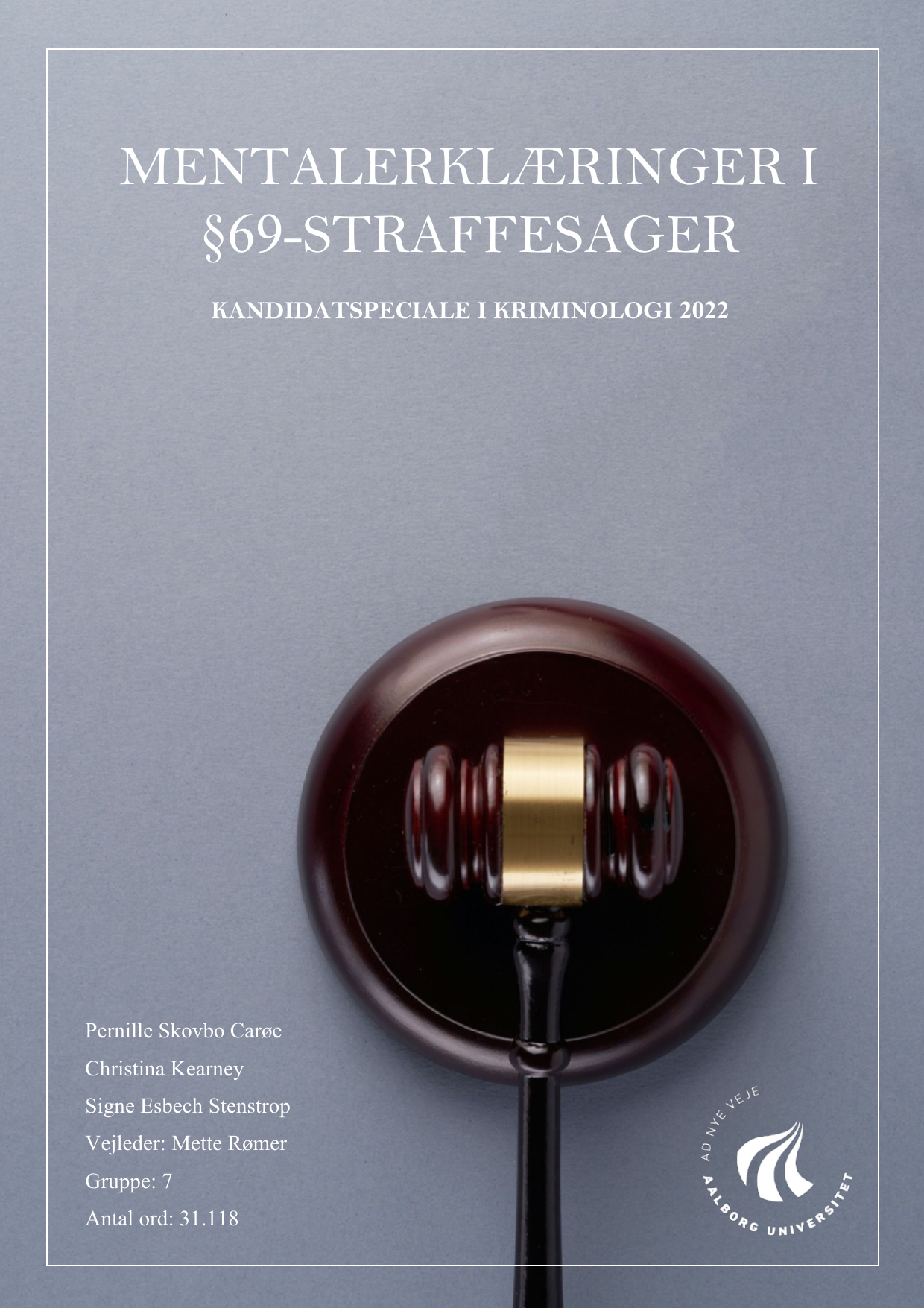
Mentalerklæringer i §69-straffesager
Oversat titel
The use of psychiatric assessment reports under Section 69 in the Danish Penal Code
Forfattere
Semester
4. semester
Uddannelse
Udgivelsesår
2022
Afleveret
2022-06-04
Antal sider
86
Abstract
From a criminological perspective this thesis examines how psychiatric assessment reports are applied by judges in the decision-making of sentencing offenders to psychiatric treatment or punishment under Section 69 of the Danish Penal Code. Furthermore, this thesis sets out to examine the implications of this. Previous research on this subject is limited. However, the scarce studies that have been conducted shows a rise in the amount of people being sentenced to a psychiatric treatment measure. In addition, a rise in the use of psychiatric assessment reports has been identified as well as a general tendency among judges to follow the recommendations in these psychiatric reports. When there is doubt about the psychiatric report or when the case is particularly complex, the assessments can be subject to a second opinion by an expert panel. This panel functions as a quality assurance. Seeing as the panel is quality assuring, the judges more often than not follow their recommendation over that of the initial psychiatric assessment, when the two disagree. Lastly, the literature finds that judicial rulings can be swayed by extraneous factors with no relevance in penal cases. The thesis is based on seven qualitative one-man-interviews with judges in order to reach an understanding of their perspectives and experiences with judicial decision-making under Section 69 of the Danish Penal Code. This will be examined with the onset understanding of psychiatric assessment reports as risk assessments as presented by Nikolas Rose. In addition, the perspectives on statuses and roles by Ralph Linton and judicial decision-making being based on more than just judicial factors by Jerome Frank will be implemented. The thesis discovers that judges follow the recommendation in the psychiatric assessment report. This is in accordance with previous studies. We contend that this leads to the reports becoming the decisive factor in judicial decision-making. We further argue that this establishes a system outside of the legal system, where judicial decisions are made by psychiatrists rather than judges. In addition, this thesis discovers that Section 69 of the Danish Penal Code is too broadly defined, and as a result too many offenders unnecessarily fall under this clause.
Emneord
